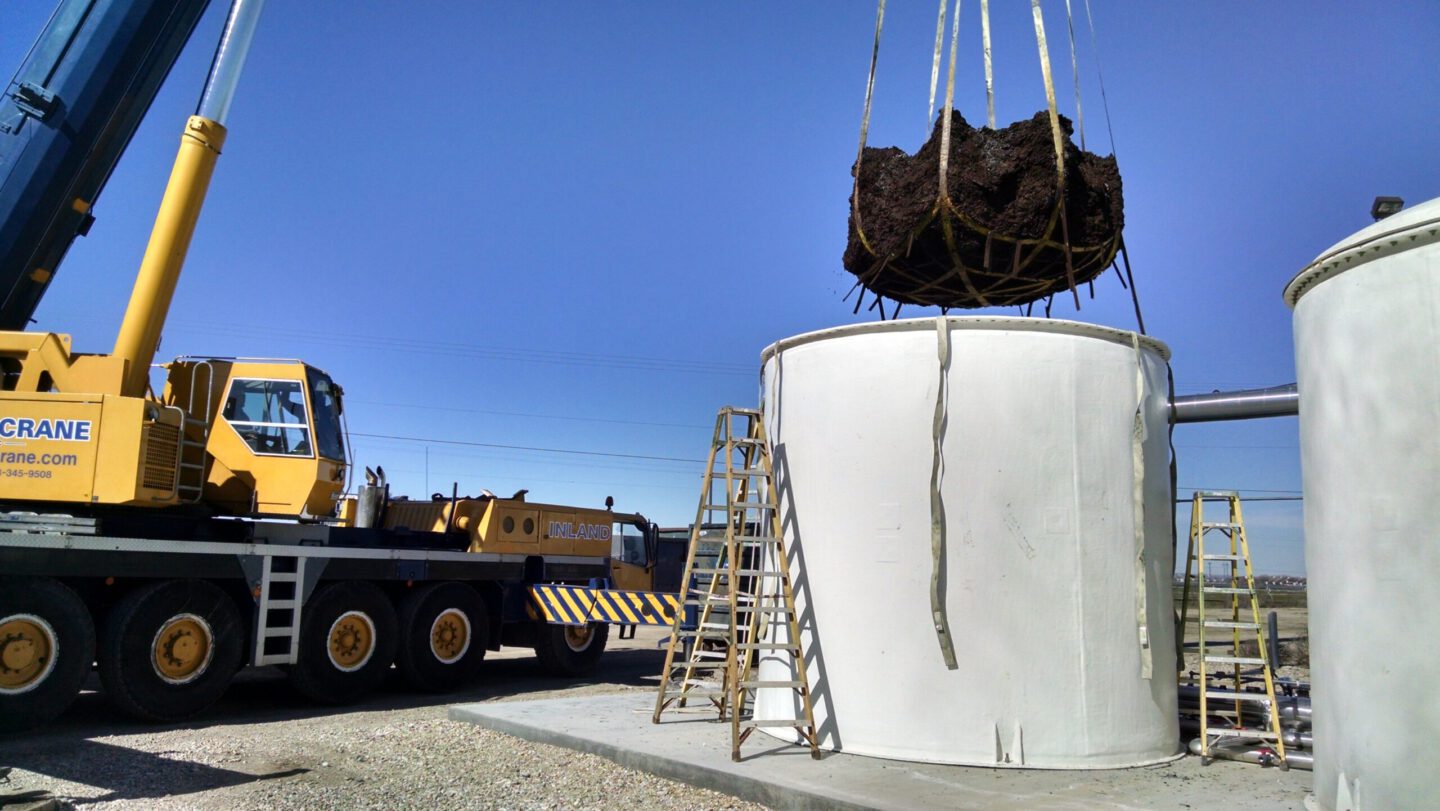Industrial H2S scrubbers are critical in managing hydrogen sulfide, a notorious byproduct in various sectors. We at MV Technologies understand that maintaining these systems is not just about ensuring operational efficiency; it’s about guaranteeing safety and compliance. This post will guide you through establishing a regular maintenance schedule and best practices for cleaning and component care, as well as monitoring performance to keep your system at peak efficiency. By engaging with our content, you’ll learn how to troubleshoot common operational issues and implement preventative measures to extend the life of your H2S scrubber. If you’re grappling with maintenance challenges or looking to optimize your scrubber’s performance, our insights will provide the solutions you need. For further assistance, don’t hesitate to contact us.
Understanding Industrial H2S Scrubbers
At MV Technologies, we understand the critical role that H2S scrubbers play in industrial applications, particularly in managing water purity, mitigating hydrogen sulfide emissions, and controlling odors from ammonia and sewage. Our scrubber systems are designed with key features to address these hydrogen sulfide challenges effectively. In the following sections, we will delve into the specifics of how our technology ensures a safer and cleaner industrial environment. contact us.
The Role of H2S Scrubbers in Industrial Applications
At MV Technologies, we recognize the pivotal role that H2S scrubbers serve in neutralizing hazardous sulfide emissions in various industrial settings. These systems utilize a reactive alkali-based fluid to convert toxic hydrogen sulfide into harmless chemical substances, ensuring compliance with environmental regulations and safeguarding workplace health. Our expertise in this technology allows us to provide solutions that are both efficient and reliable, addressing the specific needs of our clients.
Implementing an H2S scrubber is essential for industries where the byproducts include sulfide compounds that can pose risks to equipment, structures, and human health. We’ve seen firsthand how the right scrubber system can dramatically reduce odors and corrosion, leading to improved operational longevity and safety. Here’s a brief overview of the process:
- Hydrogen sulfide-laden gas enters the scrubber system.
- The gas is exposed to the alkali fluid where a chemical reaction occurs.
- The neutralized gas, now free of H2S, is released into the atmosphere or further processed if necessary.
Our commitment at MV Technologies is to ensure that every industrial facility can maintain a safe and compliant operation with the help of our advanced H2S scrubbers.
Key Features of MV Technologies’ Scrubber Systems
At MV Technologies, our scrubber systems stand out for their robust corrosion resistance, a feature that is critical in the harsh environments where biogas and air pollution control are necessary. The advanced materials we use ensure that our scrubbers can withstand the acidic byproducts of H2S absorption, thereby extending the service life of the equipment and reducing maintenance costs. This durability is a testament to our commitment to providing long-term, cost-effective solutions for odor and emission control.
We’ve designed our scrubber systems with efficiency in mind, optimizing the absorption process to handle high volumes of H2S without sacrificing performance. Our clients benefit from this efficiency as it translates to lower operational costs and improved compliance with environmental standards. By focusing on the specific needs of industries dealing with biogas and other odor-causing compounds, we deliver scrubber systems that not only protect the environment but also enhance the safety and productivity of industrial operations.
How MV Technologies Addresses Hydrogen Sulfide Challenges
At MV Technologies, we tackle hydrogen sulfide challenges head-on with our cutting-edge water treatment technology. Our systems are specifically engineered to reduce the toxicity of sulfur compounds that arise from industrial processes, such as anaerobic digestion. By integrating our technology into the heart of industrial operations, we ensure that the harmful effects of H2S are mitigated, protecting both the environment and the health of workers.
Our approach to managing H2S involves a series of strategic steps:
- We begin by conducting a thorough analysis of the industrial site to understand the specific sulfur challenges it faces.
- Next, we tailor our technology to meet the unique demands of the site, ensuring optimal performance in water treatment and emission control.
- Finally, we provide ongoing support and maintenance to guarantee that our systems continue to operate at peak efficiency, effectively managing the toxicity of sulfur byproducts.
This proactive strategy not only addresses the immediate concerns related to H2S but also contributes to the long-term sustainability and compliance of industrial operations. We at MV Technologies are committed to delivering solutions that stand the test of time, making us a trusted partner in the fight against industrial pollution.
Establishing a Regular Maintenance Schedule
To ensure the longevity and efficiency of industrial H2S scrubbers, we at MV Technologies advocate for a regular maintenance schedule. This involves routine checks of the scrubber system, particularly focusing on the solution’s concentration levels. Maintaining the correct balance of sodium hydroxide in the solution is crucial for optimal H2S absorption and waste gas treatment.
During maintenance, we prioritize examining the waste stream for any irregularities that could signal a need for system adjustments. A consistent waste stream analysis helps in preempting potential issues, allowing for timely interventions that keep the scrubber operating smoothly.
Another key aspect of maintenance is monitoring the scrubber’s internal components for signs of wear or corrosion. Given the corrosive nature of H2S, it’s vital to ensure that all parts are functioning correctly and that the sodium hydroxide solution is effectively neutralizing the gas without causing damage to the system.
We also emphasize the importance of documenting each maintenance session, creating a detailed record that tracks changes in solution concentration and system performance. This data is invaluable for optimizing the scrubber’s operation and ensuring compliance with environmental standards.
Best Practices for Cleaning and Component Care
To maintain the efficacy of H2S scrubbers in industrial wastewater treatment, regular cleaning of the system is imperative. We focus on removing any build-up of pollutants that could impede the chemical reaction essential for neutralizing hazardous gases. This ensures that the plant operates at peak efficiency, safeguarding both the environment and the health of the workforce.
Our team employs specialized techniques to clean the internal components of the scrubber, which are prone to corrosion due to the acidic nature of H2S. By doing so, we prevent premature wear and extend the lifespan of the system, which is crucial for continuous wastewater management and compliance with environmental regulations.
During the cleaning process, we carefully examine the scrubber to ensure that all parts are intact and functioning as intended. This attention to detail is vital for the prevention of leaks or failures that could lead to the release of pollutants into the atmosphere or the wastewater stream.
We also prioritize the safe disposal of any waste generated during the cleaning process. Proper handling of this waste is essential to prevent any secondary contamination of the wastewater treatment plant, thereby upholding our commitment to environmental stewardship and operational excellence.
Monitoring Performance and System Efficiency
To maintain occupational safety and health, we at MV Technologies emphasize the importance of regularly monitoring the performance of H2S scrubbers. Our engineers use precise sensors to track the efficiency of the system, ensuring that the chemical compound neutralization process is consistent and effective.
Monitoring the pH levels within the scrubber is crucial for assessing the system’s health. A stable pH indicates that the scrubber is functioning correctly, neutralizing H2S without allowing any harmful emissions to compromise workplace safety.
Our sensor technology plays a pivotal role in detecting any deviations in the scrubber’s performance:
- Sensors measure the concentration of H2S at the inlet and outlet points.
- Engineers analyze sensor data to determine the scrubber’s absorption efficiency.
- Adjustments are made based on real-time readings to maintain optimal performance.
By integrating advanced sensors and relying on our skilled engineers, we ensure that every industrial H2S scrubber we service operates at peak efficiency, safeguarding both the environment and the health of those on the industrial floor.
Troubleshooting Common Operational Issues
When addressing operational issues with industrial H2S scrubbers, we often find that organic matter and hydrocarbon accumulation can impede performance. It’s crucial to regularly inspect and clean the wet scrubber to prevent blockages that restrict airflow and reduce efficiency.
Another common issue is the imbalance of the acid-neutralizing solution within the scrubber. Ensuring the correct pH level is maintained is vital for the system to effectively neutralize acidic gases and operate safely.
Reduced airflow can also signal a problem with the wet scrubber system. We prioritize checking for any obstructions or mechanical failures that could be causing the airflow to diminish:
- Inspect the inlet and outlet for blockages.
- Examine the fan and ductwork for mechanical issues.
- Ensure the mist eliminator is not clogged with particulates.
Lastly, corrosion within the scrubber can lead to operational failures. Regular monitoring for signs of wear and immediate repairs to any corroded components are essential to maintain the integrity and functionality of the H2S scrubbing system.
Enhancing Scrubber Longevity Through Preventative Measures
To safeguard the longevity of packed bed scrubbers, we at MV Technologies recommend regular inspections to ensure the media remains free from blockages. This proactive approach prevents pressure build-up and maintains the efficiency of converting H2S into less harmful compounds.
In the pulp and paper industry, where H2S emissions are a significant concern, implementing a redox reaction strategy within the scrubber system can greatly enhance its lifespan. By maintaining the redox potential, the system effectively neutralizes odorous compounds and reduces the risk of corrosion.
Monitoring pressure differentials across the scrubber is crucial for early detection of potential issues. We focus on maintaining optimal pressure levels to prevent stress on the system, which can lead to premature wear and reduced effectiveness in H2S removal.
Regularly updating and maintaining control systems is key to ensuring the packed bed scrubber operates within its designed parameters. We prioritize these updates to enhance the system’s resilience, particularly in demanding industrial environments like the pulp and paper sector.
Conclusion
Regular maintenance of industrial H2S scrubbers is crucial for ensuring system longevity, operational efficiency, and compliance with environmental standards. By conducting routine checks, cleaning, and monitoring system performance, we prevent blockages, corrosion, and inefficiencies that can compromise workplace safety and health. Proactive inspections and updates to control systems are vital in maintaining the scrubber’s effectiveness in neutralizing hazardous gases. At MV Technologies, we emphasize these essential maintenance tips as they are fundamental to the sustainable operation of industries dealing with H2S emissions.

